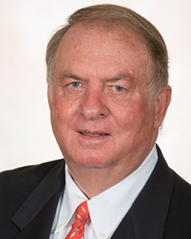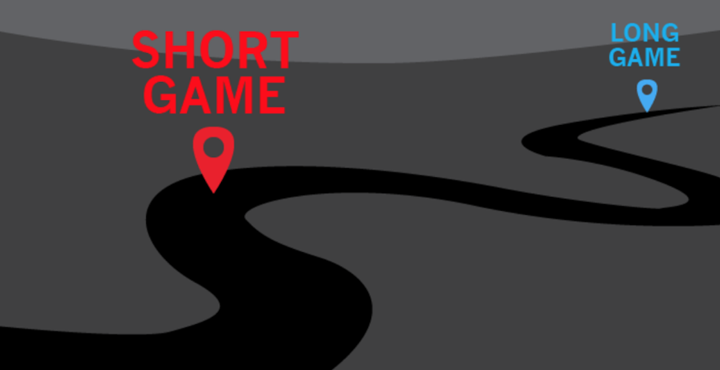
Why CEOs and boards of directors at home building firms should demand independent operational audits in addition to their financial examinations.
After watching Toyota's management respond to the recent recalls of some of its most popular car models, you have to wonder how much senior management and its board of directors really knew about the potential severity of these problems before these issues burst forth as huge liabilities, both financially and for the brand equity of the company.
Similarly, many home building executives might also be asking themselves whether they have a "Toyota" problem in their company. What is a "Toyota problem?" That would be an issue hidden in plain view, deep within the organization, and whose potential financial impact is not appreciated by the middle managers dealing with the issue--until, of course, it blows up into a crisis that threatens the very existence of the company.
That such an event could happen at Toyota, a company known for its quality control, a company studied and emulated by home builders, highlights the huge potential for damage to any company. If Toyota could get caught with a world-class blow-up problem, what risk is there for those companies without the structure and systems that Toyota had?
Home builders, particularly public home builders, are especially vulnerable to this kind of risk exposure. Unlike most manufacturers, whose operations are confined to a few plants, home builders manufacture in the field at multiple locations, often far from the daily review of middle and senior managers.
Since houses have much of their "innards" covered during production, latent defects are easy to create and hard to see. Repairs can be difficult and expensive. Throw varying code requirements on top of a company’s "standards" and heap on work being done by multiple subcontractors, who often do not know the specifications or may have a language barrier, and you have a potentially financially lethal mix of issues.
The fallout for inattention to potential defects, as we've seen, can be severe. What CEO wants to be hauled before Congress or regulators to be pilloried? What CFO wants to deal with a financial occurrence that could severely sap cash and equity from the company, potentially imperiling insurance, lending, and investor relationships for years into the future?
From a board's perspective, the balance sheet of the enterprise--both tangible financial assets and intangible goodwill--could be severely damaged. That in turn could open the company to litigation risk, particularly if the company either knew or should have known about the issue and was found to have either ignored it or mismanaged it.
If a CEO and the board are prime risk managers, evaluators, and balance-sheet protectors of the enterprise, what might they do proactively to reduce the risk of a "Toyota" problem landing unexpectedly on their doorstep one morning?
A company's primary financial risks are identified and managed through internal structures, policies, and systems. They are managed by company officers, subject to review and evaluation by an independent financial auditor. This "look over the shoulder" by a third party, delivered to the audit committee of the board, is designed to ensure that best practices are in place, that they are being followed, and that any deviations are identified for management action.
Although the third-party audit system has been shown to be subject to games (see Enron, WorldCom, and others), on the whole it has created a system that gives both management and stakeholders comfort and assurance that the financial statements of the company are true and the financial condition of the company is reasonably represented.
But, as the Toyota case brings to light, there are financial risks from operations that may not appear in the audited financial statements. These operational risks sit outside of the typical analysis and technical expertise of financial auditors.
The operations of a company, too, typically have systems and structures for the design, creation, marketing, sales, and warranty of a company’s products and/or services. Many times, the lack of adherence to standard operating procedures does not create an undue liability for a company. At other times, deviations may create huge liabilities that threaten a company's very existence.
Companies interested in employing the very best practices should consider doing an operating audit as well as a financial audit. Independent reviews can highlight potential high risk exposures or operating system deficiencies. Some might call for a transition to a better practice or a greater need for training. Others might highlight where actual manufacturing is not done in accordance with plans and specifications. Still others might reveal open or lingering persistent defects that are unresolved and/or festering and which could lead to litigation.
Normally, the operating executives of a company would monitor these issues and resolve them as part of their operating duties. However, the day-to-day struggles of priorities, focus on cost-cutting, or other profit-and-loss drivers could lead to ignoring, hiding, or denying potential issues for fear of losing one's job. When these conditions exist, senior management and boards are often left completely out of the loop until the problem has grown too big to conceal.
In terms of operational audits, the evolved best practice for the home building industry is to have a qualified, professional building science company review the plans, specifications, and scopes of work for homes in each community and division. This third party should determine where defects may need correction and then randomly review actual installations to see if the plans, specs, and scopes of work are being executed correctly.
These random reviews of warranty information and status can have additional benefits. They provide a structured review of issues that feed into the needs for different materials, labor, supervision, or training. They can provide an ongoing picture of a company's potential risks and liabilities. Taken over time, they could indicate whether operations management can correct defects and reduce potential risks.
The benefits of such a system are immense. The company's most important risk-managers (CEO, CFO, directors, and insurance managers) can begin to evaluate potential operational risks facing their company, in a way independent of management-layer filtering. (As the Toyota story emerged, it also revealed a corporate culture that wanted to deflect bad news and prevent it from reaching the chief executive. The folly of such a culture has proven to be expensive countless times, but, human nature being what it is, it continues to happen, unless the behavior is checked in someway.)
In addition, a proactive stance in identification and corrections management provides a reasonable case for more attractive insurance rates, provides a lower level of defects that eat away at profits and negatively impact production cycle time (thereby reducing return on assets), and provides another insight into where the best managers of the company are performing.
With the implosion of the residential new-housing market over the past several years, builders have had to reduce staffs and cut back on specifications just to stay alive. Given these operational and financial pressures on builders in recent years, it would be reasonable for investors, boards, and analysts to wonder if there's a "Toyota" problem hidden in the corporate closet. An independent operations audit discipline might address those worries or discover a problem that can be fixed, before it has damaged a company's reputation.
In best practice, the audit committee of a board of directors should commission regular, random, independent operations audits, just as they do financial audits. Not doing so leaves the company wide open to surprises and liabilities and could put the firm's officers and directors under intensely uncomfortable public scrutiny.
Ask Mr. Toyoda.
About George Casey

With decades of deep hands-on experience in operations and processes, business consultant and keynote speaker George Casey brings unparalleled insight to a variety of businesses to streamline operations, increase profits and long-term sustainability, especially to the residential development and home building industries.
Join Our Discussion




